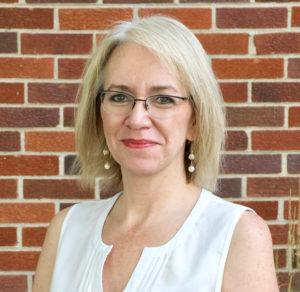 Did you read my recent letter highlighting a few students, residents and clients of the Catherine McAuley Center (CMC)? If so, you’ve read about Anna, a resident who demonstrated leadership by initiating an official AA group at CMC with the help of recovery community representatives so others in the Transitional Housing Program and throughout the community could access the benefits of a 12-Step program.
Did you read my recent letter highlighting a few students, residents and clients of the Catherine McAuley Center (CMC)? If so, you’ve read about Anna, a resident who demonstrated leadership by initiating an official AA group at CMC with the help of recovery community representatives so others in the Transitional Housing Program and throughout the community could access the benefits of a 12-Step program.
Thanks to those of you who commented on Anna’s and others’ accomplishments through programming at CMC. It’s great to know that they have the support of this generous community.

Through this communication, we learned much more about how 12-Step groups operate and the importance of anonymity and the twelve traditions. To be clear: While this 12-Step recovery meeting is held at CMC, it is not affiliated with the Center, nor do we want to infer that your donation will financially support this meeting. Why are these important distinctions? We want to honor the long-standing steps and traditions that have been a cornerstone of this valuable program.
- Tradition Six: An AA group ought never endorse, finance or lend the AA name to any facility or outside enterprise, lest problems of money, property and prestige divert us from our primary purpose (Twelve Steps & Twelve Traditions, p. 155).
- Tradition Seven: Every AA group ought to be fully self-supporting, declining outside contributions (Twelve Steps & Twelve Traditions, p. 160).
As we do not wish to jeopardize the AA tradition of anonymity by using the name of the specific group in press, radio, and other media, we will, in the future, always use the general term, “12-Step meeting.” We are grateful for the opportunity to clarify this matter and to share with you our new awareness of these important tenants of this valuable program.
